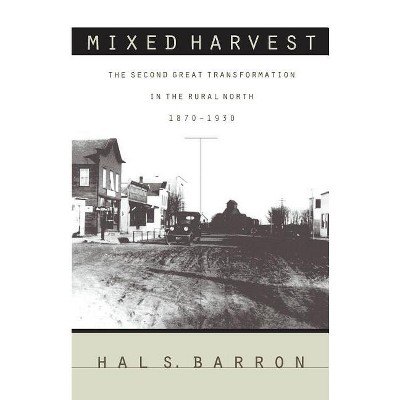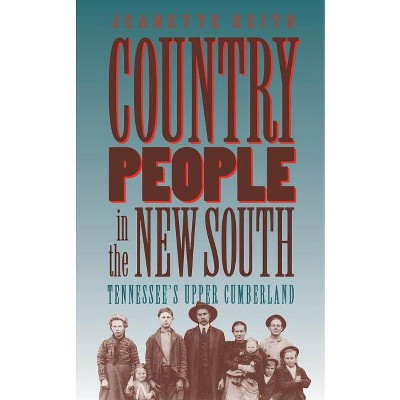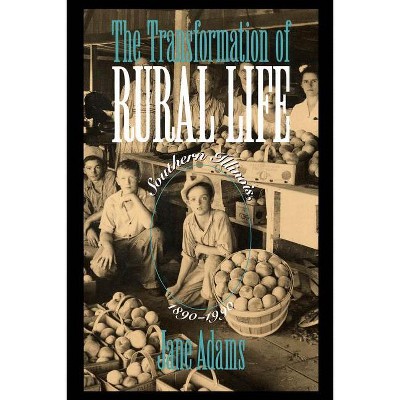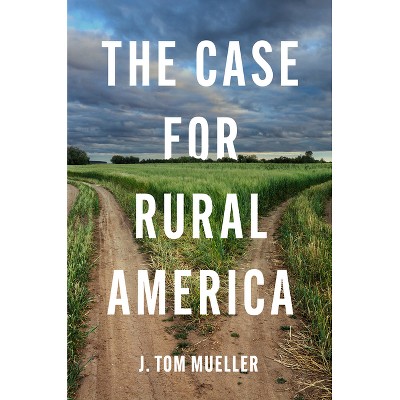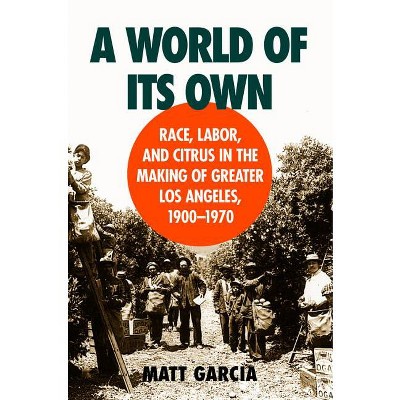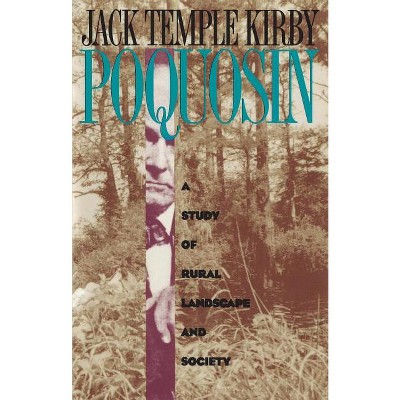Prairie Patrimony - (Studies in Rural Culture) by Sonya Salamon (Paperback)

About this item
Highlights
- Drawing on a decade-long ethnographic study of seven Illinois farming communities, Salamon demonstrates how family land transfers serve as the mechanism fro recreating the social relations fundamental to midwestern ethnic identities.
- About the Author: Sonya Salamon is research professor in the School of Economic, Political, and Policy Sciences at the University of Texas at Dallas.
- 318 Pages
- Social Science, Sociology
- Series Name: Studies in Rural Culture
Description
About the Book
Prairie Patrimony: Family, Farming, and Community in the MidwestBook Synopsis
Drawing on a decade-long ethnographic study of seven Illinois farming communities, Salamon demonstrates how family land transfers serve as the mechanism fro recreating the social relations fundamental to midwestern ethnic identities. She shows how, along with the land, families pass on a cultural patrimony that shapes practices of farm management, succession, and inheritance and that ultimately determines how land tenure and the personality of rural communities evolve.From the Back Cover
Families cannot farm without land, and whoever controls land holds power over others in the farm family and the rural community. Yet in every lifetime, control of this scarce resource must be given up to the next generation. Drawing on her decade-long ethnographic studies of seven Illinois farming communities, Sonya Salamon demonstrates how family land transfers serve as the mechanism for recreating the social relations fundamental to Midwestern ethnic identities. With family land is passed a cultural patrimony that shapes practices of farm management, succession, and inheritance and that ultimately determine how land tenure and the personality of rural communities evolve. Half the communities Salamon studied are dominated by families of German descent and half by what she terms "Yankees", or people with British Protestant ancestry. These two groups are dominant in the rural Midwest, and ethnic identity as manifested among them is a powerful force shaping the social fabric of the region. Yankees treat farming as a business and land as a commodity; profit rather than persistence of the farm motivates their actions. Farmers of German descent, however, see farming as a way of life and land as a sacred family possession, and they hold continuity of farm ownership as the highest priority. The commitment of ethnic Germans to act on their beliefs in this regard, says Salamon, explains why this group now makes up more than half of the Midwestern farm population.Review Quotes
"Prairie Patrimony" represents one of those rare studies that enrich our social vision and understanding in extraordinary ways.
Glen H. Elder, Jr., University of North Carolina at Chapel Hill
ÝSalamon's¨ approach yields a depth of information about farming culture not usually found in the literature on rural America.
"Choice"
A remarkable contribution to the study of agriculture and culture . . . its cross-disciplinary approach will engage scholars in many areas.
Jon Gjerde, University of California, Berkeley
""Prairie Patrimony" represents one of those rare studies that enrich our social vision and understanding in extraordinary ways.
Glen H. Elder, Jr., University of North Carolina at Chapel Hill"
"A remarkable contribution to the study of agriculture and culture . . . its cross-disciplinary approach will engage scholars in many areas.
Jon Gjerde, University of California, Berkeley"
[Salamon's] approach yields a depth of information about farming culture not usually found in the literature on rural America.
"Choice"
No one should doubt the great contribution that Salamon has made to our understanding of American rural life.
"American Studies"
About the Author
Sonya Salamon is research professor in the School of Economic, Political, and Policy Sciences at the University of Texas at Dallas. She is author of Newcomers to Old Towns: Suburbanization of the Heartland.





